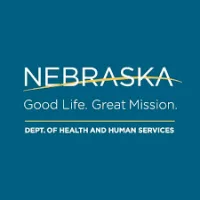
Lincoln, NE – The first reported human case of West Nile virus (WNV) for the 2025 season has been detected in the East Central District Health Department. While no mosquito pools have tested positive for WNV so far this season, it is important to remember that not all areas where mosquitoes might be found are sampled, but could still contain mosquitoes carrying WNV. These areas include any instance of standing water found in parks, communities, and backyards across our state. The Nebraska Department of Health and Human Services encourages residents to take proactive steps to protect themselves and their loved ones from WNV.
WNV is the leading cause of mosquito-borne disease in the United States. Transmission of WNV occurs through the bite of a mosquito that has acquired the virus by feeding on an infected bird. In turn, the mosquito passes the virus to humans. Humans cannot get WNV from a dead bird.
“Since there is no vaccine or specific medicine to treat West Nile virus, it is important for Nebraskans to take preventive steps to reduce their risk of mosquito-borne illness and enjoy their summer safely,” said Dr. Sydney Stein, DHHS State Epidemiologist.
People can reduce their risk:
- Use a repellent that contains DEET, picaridin, lemon eucalyptus oil, or IR3535.
- Wear long-sleeved shirts, long pants, shoes, and socks when outside.
- Take extra precautions when going outdoors at dawn and dusk when mosquitoes are most active.
- Drain standing water around your home. Empty and change the water in bird baths, fountains, wading pools, rain barrels, and potted trays at least once a week, if not more often.
- Irrigate lawns and gardens carefully to prevent water from standing for several days.
- Make sure window and door screens are “bug tight” and repair or replace torn screens.
Most people who are infected have no symptoms or only mild flu-like symptoms. Less than 1% of people infected with WNV become severely ill. However, people over 50 and those with weakened immune systems are especially vulnerable to the disease and are more likely to experience serious consequences.
Additional information can be found on the DHHS website at: https://dhhs.ne.gov/pages/west-nile-virus.aspx.








